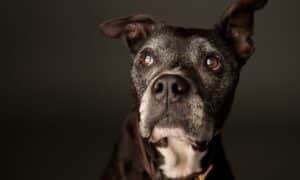“This post contains affiliate links, and I will be compensated if you make a purchase after clicking on my links.”
Having a dog brings immeasurable joy in our lives, but it also comes with heart aches. And one of these is the fact that as our furry friends age, they become more prone to health issues.
And just like hoomans, dogs experience something similar to that of Dementia or Alzheimer’s disease. And this is commonly referred to as dog dementia but is also called Canine Cognitive Dysfunction (CCD).
Like us, as dogs grow older, their brains age and their behavior changes. And older dogs that develop this syndrome become more absentminded and disoriented.
In this article, we’ll do a deep dive on dog dementia, how and when it develops, what the signs and symptoms are, how to treat it, and of course, how to take care of a dog with it.
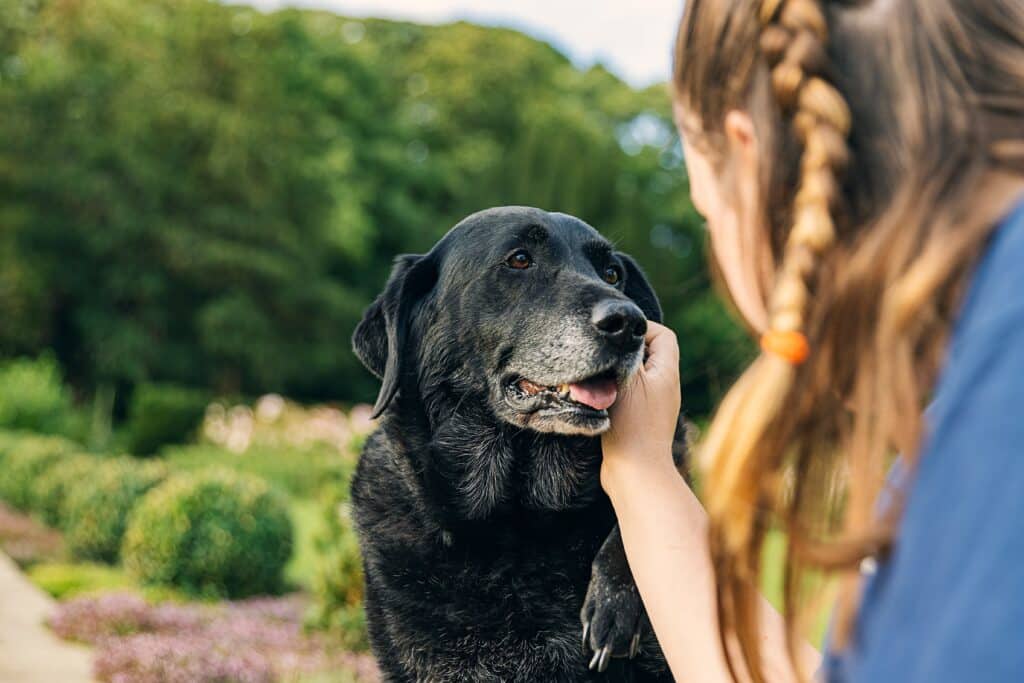
What Is Dog Dementia?
It causes similar symptoms to that of dementia or Alzheimer’s in humans, hence the name. Furthermore, clinical signs of CCD is found in nearly one in three dogs over the age of 11. And by the time dogs reach the age of 16, nearly all of them will display at least one sign of this syndrome.
How Do Dogs Develop Dementia?
However, dogs can also develop dementia due to other factors. Genetics and other medical conditions like brain tumors or a stroke can affect the onset of dog dementia.
When Does Dementia Start To Happen In Dogs?
But every dog is unique. And as mentioned above, dog dementia can develop due to other factors other than a dog’s aging process.
Signs and Symptoms Of Dog Dementia
The signs and symptoms of dementia for dogs can range from mild to severe. The initial symptoms are mild, but they gradually worsen as the disease progresses over time.
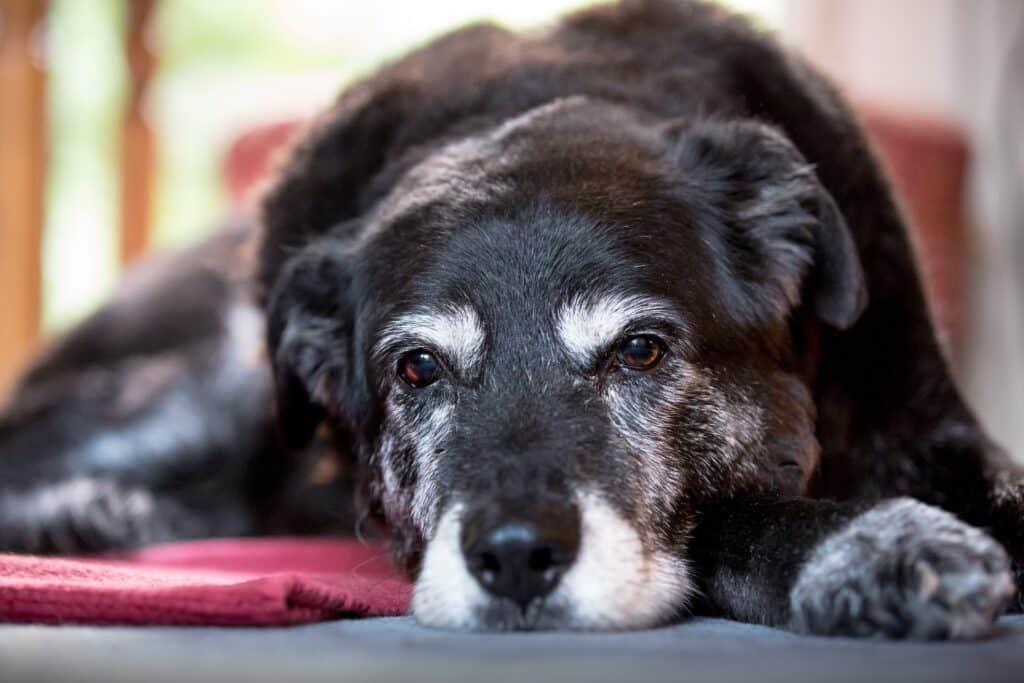
Below are the most common dog dementia symptoms:
- Disorientation and confusion
- Failing to remember familiar places, faces (like other people and pets), and commands
- Anxiety
- Extreme irritability
- Loss of appetite
- Aimless wandering or pacing
- Staring blankly at walls or at nothing
- Decreased desire to play
- Seeming disregard for previously learned training and rules
- Slow to learn new tasks
- Lack of self-grooming
- House soiling
- Sleeping problems such as night walking, vocalization, and pacing
The earlier you detect the onset of dog dementia, the better. So, as an owner of an aging dog, it’s important to know and be able to identify these common symptoms in your pooch for early intervention.
Treating Dog Dementia
There is no permanent cure for dog dementia. However, treatments to slow the progression of the syndrome and relieve its symptoms are available.
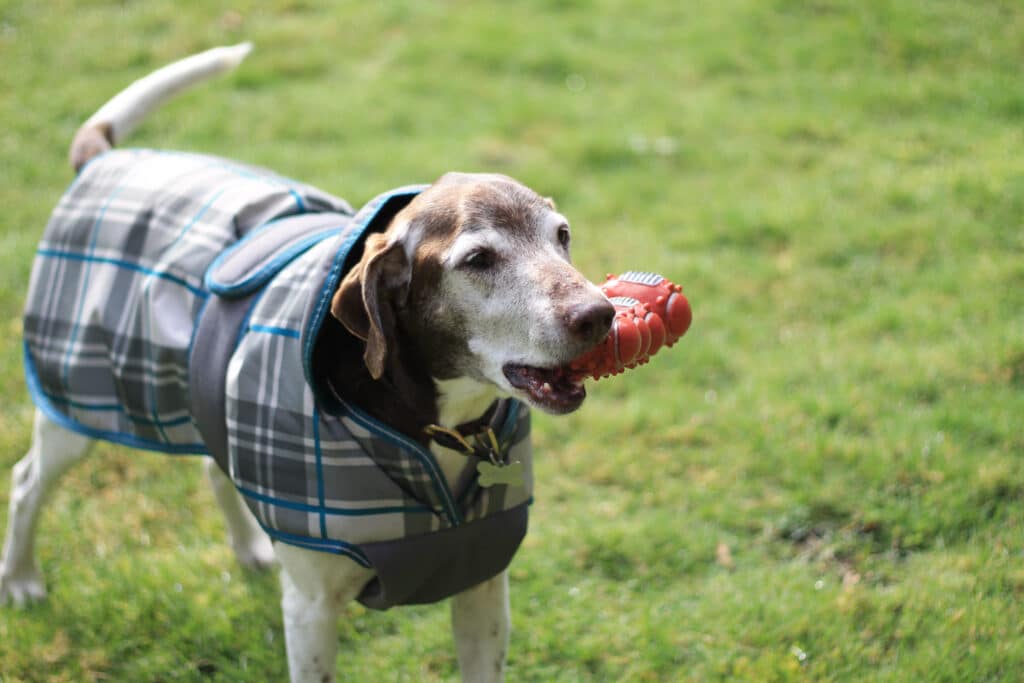
Treating canine cognitive dysfunction requires medicine, a lot of support, and therapy to promote your pooch’s brain function and potentially, slow down cognitive decline.
Treatment options for dog dementia includes:
- Medication & Supplements: There are medication and supplements that can help slow down the progression of dementia in dogs. These medication will depend on your dog’s symptoms. So, make sure to speak to your dog’s veterinarian to find out the best options for your pooch.
- Dietary changes: This is when you change your senior dog’s diet to something that contains antioxidants, Omega-3 fatty acids, Vitamin B, E and C. However, please note that this must be done with the guidance of your dog’s vet.
- Life enrichment: This includes developing and sticking to a routine, providing appropriate physical exercise, and mental stimulation for your pooch.
- Behavioral therapy: Since dogs suffering from cognitive dysfunction experience a change in behaviors, therapy can be beneficial for them. It can help ease their anxiety and alleviate their behavioral changes.
Treatment for dog dementia depends highly on your dog’s symptoms. And of course, before you even begin with treatment, a thorough consultation with your dog’s vet is a must!
How To Take Care Of A Dog With Dementia
While it may not completely prevent dementia, there are a lot of ways to take care of a dog with dementia, physically and mentally, to keep them healthy.
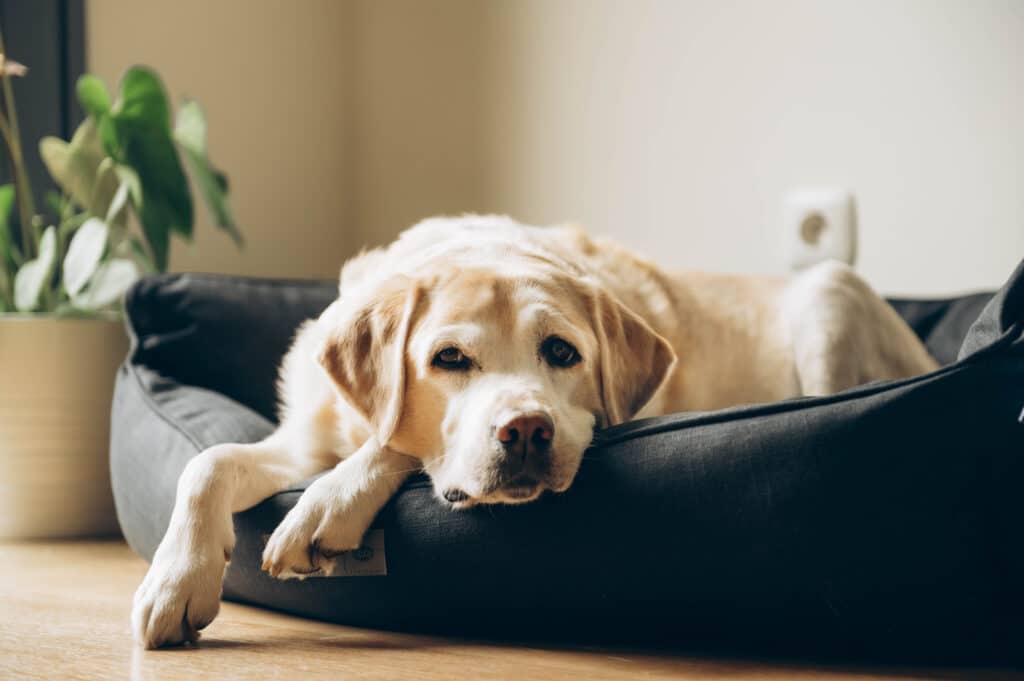
Here are things you can do to take care of and support a dog suffering from cognitive dysfunction:
- Put up nightlights at home to help your senior dog navigate better in the dark.
- Add potty pads near doors so that your pooch can potty, especially when you’re not at home for long periods of time.
- Opt for an orthopedic dog bed for better sleep quality and to alleviate any type of discomfort.
- When making changes to their routine, make sure to do it gradually.
- Avoid any changes that may cause anxiety or stress. Things such as rearranging the furniture and introducing new and unfamiliar places, persons, pets, etc.
- Dementia-proof your home. Think of it as you baby-proofing your home. As dementia progresses, a dog that used to be well-trained might forget all of these and may not have the same level of restraint and patience. They might be tempted to eat leftovers, so make sure to keep your food in dog-proof containers and that the garbage is out of their reach.
- Provide plenty of love, patience, and support. Taking care of a dog with dementia is an emotional journey, both for the owner and the dog. It can be frustrating and exhausting, especially when they gradually forget their training and undergo behavioral changes. But remember, these changes are as frustrating for them as they are to you. So, giving them lots of love, patience, and support will help them cope better.
- Monitor their overall health and schedule regular vet check-ups. Since a senior dog is more susceptible to health issues, it’s best to monitor their health and schedule vet check-ups to ensure their overall health and check for any other issues.
Conclusion
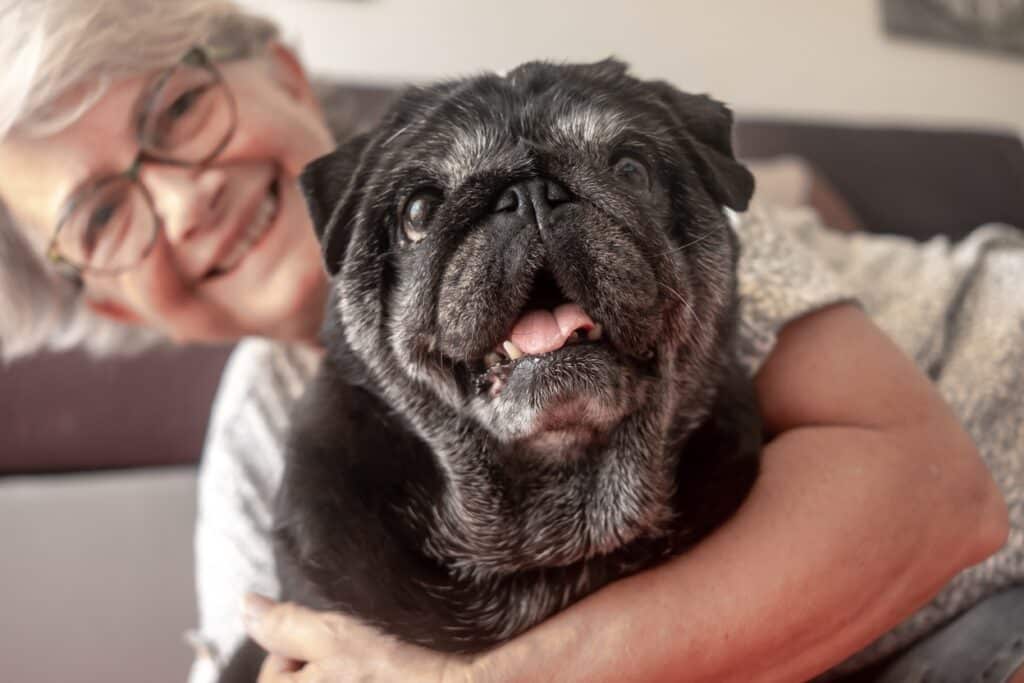
And taking care of a dog with dementia is a journey, both physically and mentally. From making small changes at home to cater to them better, to providing things to keep them calm and happy, there are many ways to show your pooch how much you love and care for them, despite their old age and condition.
But by being there for your beloved pooch, providing them the support, patience, and compassion they need, dealing with dog dementia can be less challenging.



